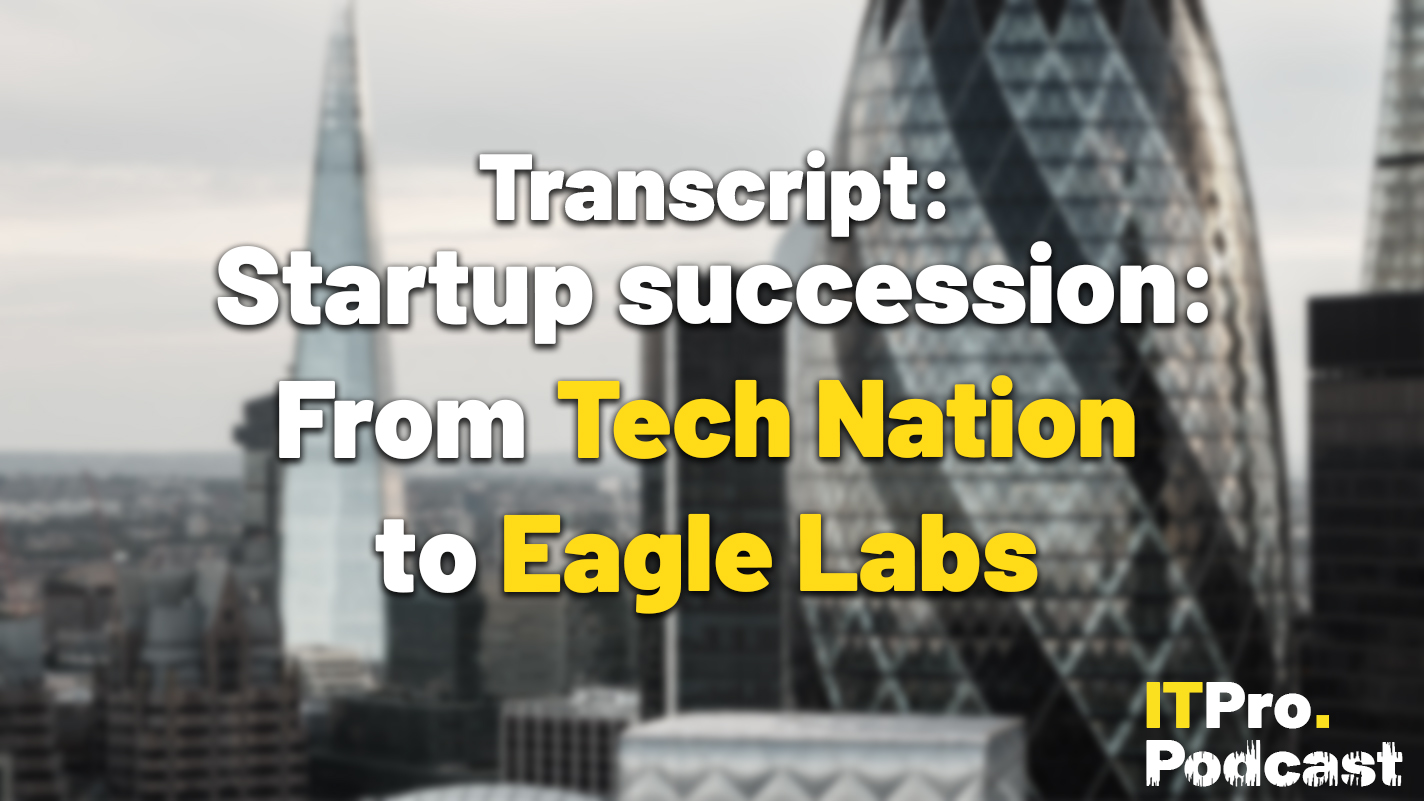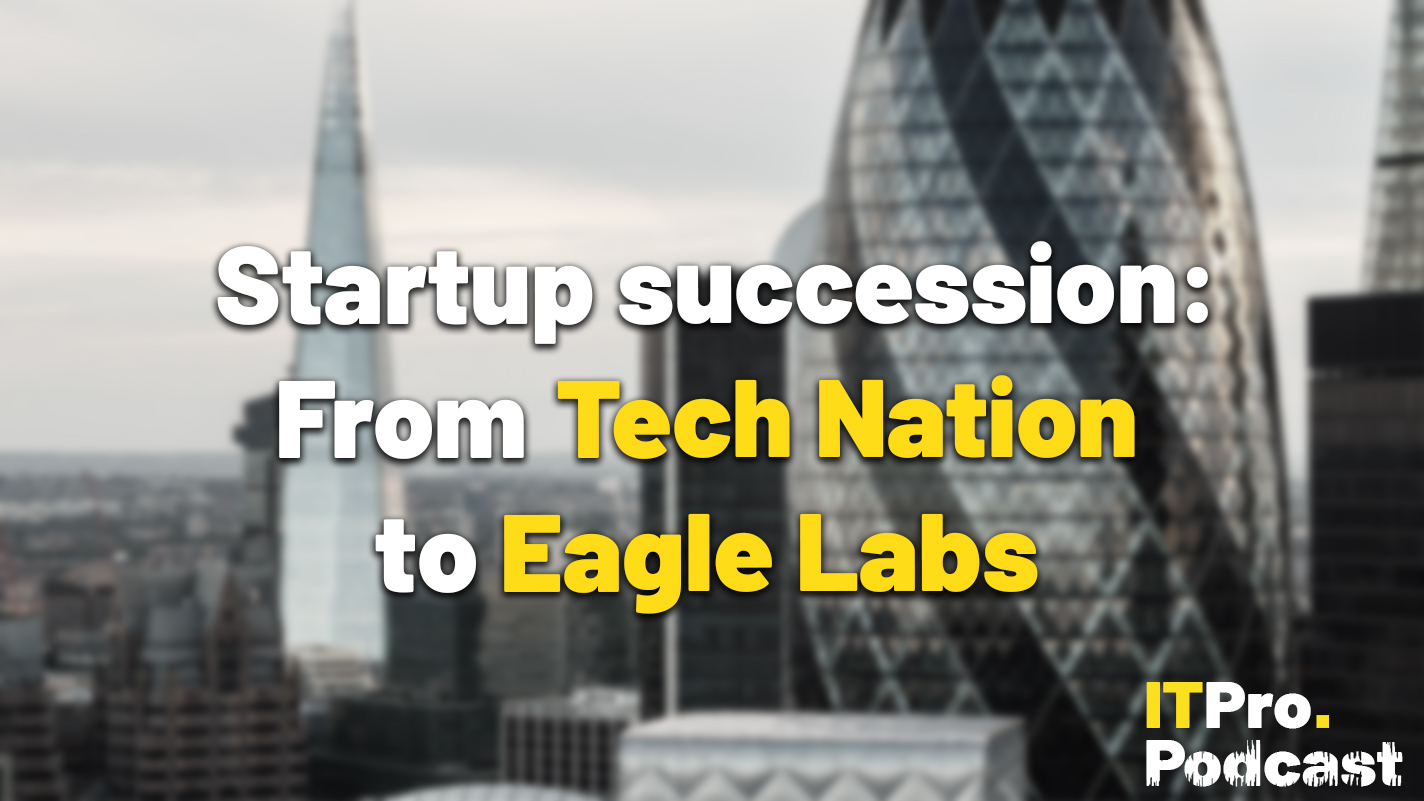A guide to the UK’s tech sector
Julian David, the CEO of techUK, takes us through the country’s fastest growing industry


In 2018, the UK’s technology sector contributed more than £149 billion to the country’s economy. Its growth continues to outpace all other industries and that has remained the case throughout the twists and turns of Brexit and the outbreak of COVID-19.
While the UK’s tech scene may be considerably smaller than then that of the US or China, it is often cited – correctly or not – as the biggest in Europe. Wherever it truly ranks, it’s a hotbed of talent, investment and innovation.
Julian David, the CEO of techUK knows this as well as anybody. With 20-years of experience in the industry, and as the head of the sector’s biggest lobby group, he is well placed to weigh up its pros and cons.
“I've been in the industry a long time and it's true that challenges in tech, they literally are opportunities as well,” says David. “Because whenever there's a change of circumstance, whenever there's something that affects or disrupts something, then there's generally a demand for tech.
“Our job is to be the representative voice for digital tech companies. We have a vision of digital technology, improving lives, and making people able to confront the future, to see what's coming next and to understand how to deal with it, and how to make the best of it and take advantage of the opportunities that come.”
What the UK does and where
London is often the focus of the UK’s tech sector, partly because it receives more political attention, but also because of its well-established financial industry. This, in turn, has bred the country’s most successful tech export; out of the 12 fintech unicorns in Europe, eight are UK-based. These are already household names such as Monzo, Revolut and Transferwise, but beyond that there are also some lesser known entities in a burgeoning sector.
“Fintech is quite a broad set of areas,” David explains. “One of the most interesting areas is regulatory technology, or ‘Regtech’, which sounds a bit dull but it's really, really significant in the financial services arena. Especially as more and more financial service offerings go online.
Get the ITPro daily newsletter
Sign up today and you will receive a free copy of our Future Focus 2025 report - the leading guidance on AI, cybersecurity and other IT challenges as per 700+ senior executives
“The UK is really good at that and the reason is a combination of the fact we're good at financial services and we've invested in developing Fintech. But there are some crucial things in there, such as having a great customer base to work from, a great skill base of people who value services, but also the regulatory stuff that was done, like the sandboxes and the encouragement of experimentation.”
The capital is also a thriving centre of artificial intelligence. The varied uses of the technology is perfectly illustrated by the different startups the UK has developed, such as Signal AI, a media firm that uses machine learning models to surface critical news stories, or BenevolentAI, which is more focused on healthcare. However, there is one area of AI that the UK really excels in – deep tech.
“Deep tech is really at the boundaries of science,” David explains. “There are numerous examples of this over time, but the obvious one is the DeepMind acquisition by Google. The fact that has stayed centred in the UK, because we are very, very good at deep science and data science, in particular analytics and AI.
“Even though obviously, the US and China are huge investors in this space. After them, you can still see the UK as a really strong player there.”
There are big hubs dotted around the UK, such as Manchester where a media tech sector has blossomed, and Leeds, which is an important centre for both medical and financial technology. However, Bristol is perhaps the fastest growing hub. In 2019 it was revealed by figures from the National Office of Statistics as the best place to launch a tech startup due to the lifespan firms enjoy in the area. What’s more, the region seems to be more varied than elsewhere in the UK, with expertise in robotics and self-driving cars, as well as being home to chipmaker Graphcore, one of the country’s unicorns.
Unicorns, acquisitions and mergers
Billion dollar companies are also a fairly good way to gauge the quality of the UK’s tech ecosystem. By the end of 2020, the country had 15 companies classed as a ‘unicorn’, with the majority of them in tech. These include AI and deeptech firm Benevolent AI, Graphcore and cyber security firm Darktrace. The latest UK startup to become a unicorn is virtual conference platform Hopin, which also now holds the record as the fastest to reach the $1 billion valuation mark, doing so in just 17 months.
Britain hasn’t built a super tech giant, such as Google or Apple, but startups and technologies developed in the UK are in high demand as acquisition targets. The most recent is Cambridgeshire-based chipmaker ARM, which was acquired by Nvidia in the middle of 2020. The takeover sparked a heated debate about protecting jobs and UK interests, but David suggests it isn’t necessarily something to worry about.
“The logic of this is, if you are an international company, why would you acquire an operation like ARM? And there are all sorts of reasons why you do, but when you have something like ARM, you must be looking at the capability and you must be buying because you don't have that capability. So why would it make sense to then disrupt that capability and shut down? It's pretty clear, they haven't done that.”
Nvidia CEO Jensen Huang has discussed plans to expand ARM’s headquarters and build an AI research centre, which could help to actually grow the chipmaker. Either way, it is a great example of the UK’s strength in talent. There may not be a Microsoft or Facebook in the country, but there is plenty of innovation.
Bobby Hellard is ITPro's Reviews Editor and has worked on CloudPro and ChannelPro since 2018. In his time at ITPro, Bobby has covered stories for all the major technology companies, such as Apple, Microsoft, Amazon and Facebook, and regularly attends industry-leading events such as AWS Re:Invent and Google Cloud Next.
Bobby mainly covers hardware reviews, but you will also recognize him as the face of many of our video reviews of laptops and smartphones.
-
 Third time lucky? Microsoft finally begins roll-out of controversial Recall feature
Third time lucky? Microsoft finally begins roll-out of controversial Recall featureNews The Windows Recall feature has been plagued by setbacks and backlash from security professionals
By Emma Woollacott Published
-
 The UK government wants quantum technology out of the lab and in the hands of enterprises
The UK government wants quantum technology out of the lab and in the hands of enterprisesNews The UK government has unveiled plans to invest £121 million in quantum computing projects in an effort to drive real-world applications and adoption rates.
By Emma Woollacott Published
-
 Is Rishi Sunak’s ‘Unicorn Kingdom’ a reachable goal or a mere pipedream?
Is Rishi Sunak’s ‘Unicorn Kingdom’ a reachable goal or a mere pipedream?Analysis Plunging venture capital investment and warnings over high-growth company support raise doubts over the ‘Unicorn Kingdom’ ambition
By Ross Kelly Published
-
 Some Tech Nation programs could continue after Founders Forum acquisition
Some Tech Nation programs could continue after Founders Forum acquisitionNews The acquisition brings to a close a months-long saga over what the future holds for Tech Nation initiatives
By Ross Kelly Published
-
 Podcast transcript: Startup succession: From Tech Nation to Eagle Labs
Podcast transcript: Startup succession: From Tech Nation to Eagle LabsIT Pro Podcast Read the full transcript for this episode of the ITPro Podcast
By Rory Bathgate Published
-
 The ITPro Podcast: Startup succession: From Tech Nation to Eagle Labs
The ITPro Podcast: Startup succession: From Tech Nation to Eagle LabsITPro Podcast Some small firms are already lamenting the loss of Tech Nation, but Barclays Eagle Labs has much to offer the sector
By Rory Bathgate Published
-
 Don’t count Barclays Eagle Labs out just yet – it can deliver in ways Tech Nation never has
Don’t count Barclays Eagle Labs out just yet – it can deliver in ways Tech Nation never hasOpinion Tech Nation has a great track record, but Eagle Labs has the experience, the financial clout, and a clear-cut vision that will deliver positive results for UK tech
By Ross Kelly Published
-
 UK tech sector could face a ‘unicorn winter’ amid spiralling economic conditions
UK tech sector could face a ‘unicorn winter’ amid spiralling economic conditionsNews Tech Nation’s final piece of industry research calls for action to support continued ecosystem growth
By Ross Kelly Published
-
 "It's still not great": Industry divided on government's SMB tax relief package
"It's still not great": Industry divided on government's SMB tax relief packageNews The government’s handling of R&D tax credits has left SMBs with a “sense of disbelief”
By Ross Kelly Published
-
 UK startup's Equinix deal marks step towards broad quantum computing access
UK startup's Equinix deal marks step towards broad quantum computing accessNews Businesses around the world will be able to use its quantum computing as a service platform through Equinix
By Zach Marzouk Published